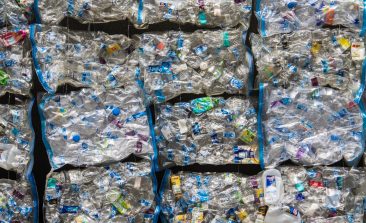Content to: Waste Management
Super-Sorting Robots Help Unlock the Full Potential of Recycling
Inefficient sorting means 25 percent of materials end up wrongly in landfills. AI is increasingly helping recycling centres ensure everything ends up where it belongs.
Trash-Eating Mushrooms Are Being Deployed to Eat Demolition Debris
Just as fungi can contribute to the construction of a building, it can also play a part in breaking down demolition debris.
Used Diapers Show Promise as a Sustainable, Cheap Building Material
Scientists in Japan hope their innovative building material can provide affordable housing while cutting down on sand use and significantly reducing the number of diapers that end up in landfills.
Recycleye: Robotics and Image Recognition Team Up for Automated Trash Sorting
For many people, tossing garbage into the bin marks the end of their relationship with it. It has now become someone else's responsibility and - if it has not been disposed of properly - someone else’s problem.
Cash for Trash: The App Entering You Into a Lottery Every Time You Bin Litter
A UK app has created a special cash lottery for anyone picking up and binning litter.
Smarter Sorting: Artificial Intelligence Helps Stop Retail Waste at the Source
Smarter Sorting’s AI-powered platform wants to help drastically cut retail waste, diverting valuable products from landfill and back into recycling and reuse.
The Omni Processor: Turning Sewage Into Drinking Water in Senegal (and Beyond?)
Taking the idea of one man's trash being another man's treasure to new lengths, the "omni processor" plant takes literal human waste and turns it into valuable goods - including electricity and clean drinking water.
Is Waste-to-Energy Incineration a Real Solution for Southeast Asia’s Growing Garbage Pile?
While Japan presents a sustainability concept for the upcoming 2020 Tokyo Olympics, the country remains in a battle to manage its ever-growing trash mountain - with most of its waste destined for incineration. And other Southeast Asian countries are set to follow suit.
Vultures Circling in on Illegal Littering in Peru
Peru’s environment ministry has had enough of trash. Using cameras and GPS-equipped vultures, they’re taking to the skies to catch litterers at work.








